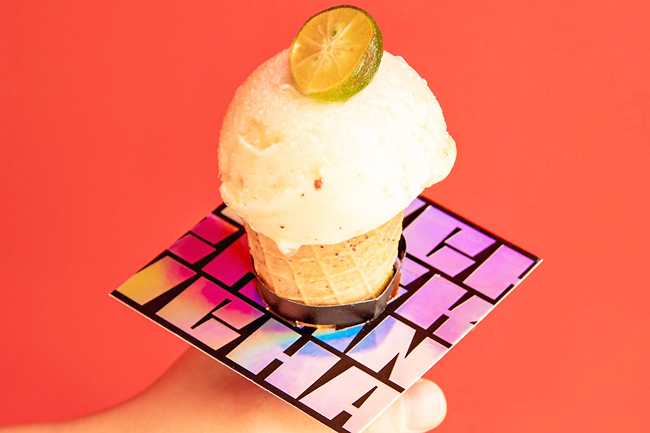ANN/THE STAR – Joanne Chew voted in her first Malaysian general election 11 years ago. Before that, she had primarily worked in New York and Singapore after graduating from Parsons School of Design.
“Prior to 2014, I had not really worked in Malaysia for long enough to make a difference,” she said.
However, the act of voting ignited a desire within her to actively participate in shaping the future of her country. This realisation prompted her to think that even something as small as a well-designed business card could be a contribution.
She followed through on her words a year later by returning to Malaysia and establishing Fictionist Studio. Presently, this creative studio is renowned for its involvement in numerous significant design and branding projects within the local scene.
Their portfolio includes branding for prominent food and beverage establishments, property developers, as well as book designs and paper art installations.
“It’s quite fun and interesting because you learn so much along the way. We have been involved in real estate, tech start-ups, fashion, plastic recycling and more,” she said.




“We’re both art and design-led,” she said, describing the ethos of the studio. “I feel having this duality allows us to champion originality as best as we can while also showcasing how effectively we can communicate as visual designers. For us, it’s not just about designing beautiful-looking products, they need to have a strategy behind it and tell a story.”
VISUAL REVOLUTION
Since founding Fictionist Studio in 2014, Chew observed the local landscape and market for creative design has experienced a positive shift.
“Ten to 15 years ago, everything was very cookie-cutter,” she said.
Back then, there was little by way of creative risk-taking and experimentation when it came to how businesses branded themselves.
These days, however, she opined more businesses are recognising the value and potential of good design.
“I think it’s also due to legacy businesses that now have second and third generation leaders who are more well-travelled, cognisant of trends and exposed to art, culture, design, so they then look for agencies or creative practitioners that can provide that edge.”
Thanks to its impressive portfolio of boundary-pushing work, the studio has been able to draw in a diverse range of clients across various sectors who prize compelling and memorable design.
“Those who knock on our door know what we are capable of and are seeking more unconventional, out-of-the-box creative solutions, so we’re often quite aligned from the get-go,” she added.
The projects that Chew is most proud of, however, are the ones that have posed the toughest challenges.
“The final outcomes are often a result of dogged perseverance to see it through and materialise it in the way we envisioned,” she said.
One such example is the studio’s work with plastic recycling company Heng Hiap Industries.
Tasked with rebranding the business’ identity, the designers set out to position it into “the Apple of plastic recycling” with a new logomark, website design, print collaterals and brand strategy.
In her opinion, designing the website was particularly rewarding, as they had a unique opportunity to create a sleek, interactive digital offering for a more traditional company, with inventive UI/UX, graphics and copywriting that better reflected its place as an international player.
As a result, the company has reported receiving more inquiries globally since the website’s launch.
“We are used to business-to-consumer (B2C) projects that mainly target consumers, but we hadn’t really done business-to-business (B2B) like this,” she said.
“For these kinds of businesses, they don’t really spend that money on marketing, so it is extra work to convince clients that you can still market your product attractively, package it differently and tell their story in a more engaging manner, even when it’s B2B.” – Nicole Chew






